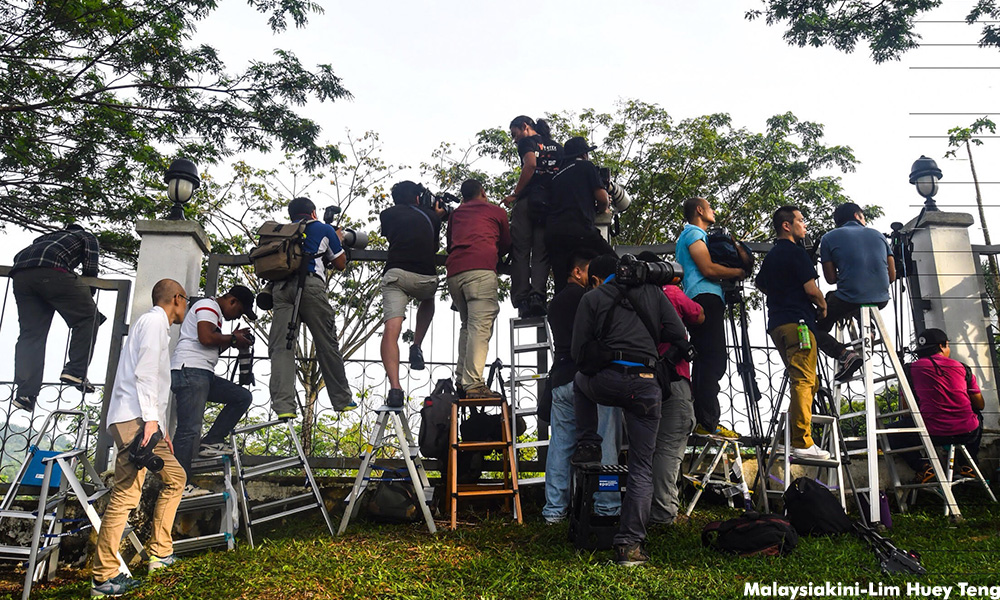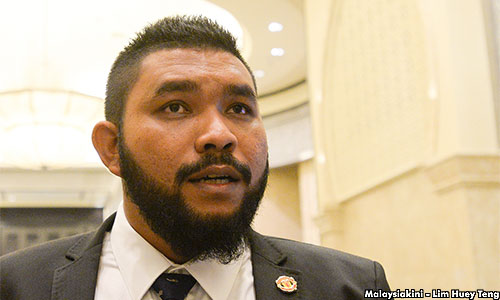COMMENT | In the latest twist to the ongoing Nur Sajat saga, the well-known cosmetic entrepreneur bemoaned the Malaysian Islamic Development Department (Jakim) and the public preoccupation over her gender identity.
"This gender issue... is like the country’s biggest issue," she wrote in Malay on her Facebook page. She continued. "Should Nur Sajat’s issues really be the topic of conversation in this country? Think about it!"
Despite the public embarrassment, Nur Sajat’s story, however, represents an opportunity to start a conversation that has been put off for far too long. Transgender persons in Malaysia are often vilified by means of misrepresentation in the news media.
Although less prevalent in the English media, most contents put out by the Malay media often use incorrect gender pronouns or derogatory terms when referring to transgender persons. In addition, these reports generally tend to focus disproportionately on the gender identity of their subjects, which in turn are normally irrelevant to the actual events that are being reported.
Incorrect terminology in reporting
A common practice is the use of incorrect or demeaning labels in news reports that feature transgender persons. Terms such as "pondan" (a Malay term used to describe an effeminate person), "lelaki berpakaian wanita" (a man dressed in a woman’s clothes), and "transvestite" (cross-dresser) are often used in lieu of more acceptable labels such as "Mak Nyah" (a local term for transgender women), or simply referring to them by their chosen gender pronouns. This mischaracterisation of transgender persons as cross-dressers further fuels the belief that transgender identity is something that can be cured, and that one can be convinced to stop being a transgender.
In the media analysis conducted by Justice for Sisters (a pro-Mak Nyah rights local NGO) in the aftermath of the murder of an unnamed transgender woman in March 2016, only one news report by Malaysiakini out of 25 news reports, referred to the victim as a transwoman; all other reports failed to use the correct gender pronoun.
The issue was further compounded by sensational titles like "Pondan mati ditolak dari kondo" (Kosmo) and "Mayat ‘pondan’ dalam bungkusan dicampak dari tingkat tiga kondominium" (Astro Awani) and the usual disproportionate attention given to the victim’s attire, appearance, and identity.
An unverified photo of the victim was also published in a news report by Kosmo prior to her transition, whereas The Malaysian Digest included a photo of a transwoman with pixelated breasts for "illustration purposes only". How charming.
This trend, according to Justice for Sisters, continued, albeit with some improvements, during the reporting of the murder of Sameera Krishnan a year later, with at least six news reports noting her sex at birth and her eventual transition.
Notably, news reports published by national news agency Bernama in both instances referred to the victims as "man in women’s clothing" and "transgender in women’s attire" respectively. As many news outlets use Bernama as the source of their reports, this highlights the national news agency’s pivotal role in setting the terminology for further reporting.
Disproportionately negative coverage
Coverage of transgender issues is largely influenced by a conservative viewpoint that continues to be pushed implicitly by news outlets, whether through their reporting or through opinion pieces. Lumped together with other marginalised groups under the LGBTQ banner, transgender persons are often blamed for numerous social ills including the spread of HIV/AIDS and are portrayed as the enemies of traditional values and Islam.

Positive coverage provided to the transgender community is minimal, with some English-language news portals publishing comments and statements by transgender activists and organisations. Conversely, most news reports in Malay focus on demonising the transgender community, while also highlighting the successes of "rehabilitation" of transgender persons through religion.
A prime example of this was the media coverage provided in April 2016 to Sofea Ilias, a transgender woman and entrepreneur who de-transitioned and subsequently announced her intent to act as a figurehead for the rehabilitation of other transgender women. Garnering the attention of Jamil Khir Baharom, Minister in the Prime Minister’s Office in charge of Islamic Affairs and other mainstream news outlets, Sofea’s example was used to pressure other transgender women to "change", including fellow entrepreneur Nur Sajat.
However, Sofea backtracked on this decision in September of the same year, a decision which did not receive anywhere near as much coverage by the media. In recent times, the claim that Nur Sajat is a transwoman has been repeated by notorious blogger Wan Muhammad Azri Wan Deris, otherwise known as Papagomo (photo), leading to the current gender verification fiasco by Jakim.

In direct contrast, the various successes and achievements of the transgender community are rarely given attention by the local media.
Dire consequences of misrepresentation
Taken together, this combination of underreporting the good and pushing a conservative line contributes to a more dangerous environment for the transgender community in Malaysia. The most obvious consequence is that the transgender community will be less likely to come out, and this has repercussions for their mental and physical health. The confusion fuelled by the fundamentally incorrect reports pushing successful "rehabilitation" can only lead to worsening gender dysphoria, as was the case with Sofea Ilias.
More importantly, the implication that transgender identity is unnatural and against conservative (and Islamic) values invites bullying and hate crimes towards the transgender community. The toxic environment enabled by the Malay media and the stigma and harassment experienced by transgender people at the hands of the authorities almost certainly guarantees that some crimes against them go unreported, and thus the perpetrators can offend with impunity.
News editors and journalists must be more considerate when reporting on transgender issues and additional coverage devoted to their success stories will also empower their community. Until such an effort is made, however, it is likely that the transgender community will remain besieged and misrepresented.
Ultimately, the transgender community wishes only to be left alone, and afforded the same rights the rest of us enjoy: to be able to work, to live, to have a private life and go about their daily activities without fear of discrimination, harassment and abuse.
The transgender community is among the most vulnerable communities in Malaysia – we need to understand and support them instead of mocking and demonising them.
The words we use do matter. Enough with the derogatory terms and sensational reporting; use your words to shape a progressive paradigm shift on how Malaysians should view the transgender community – not as "pondan" or "men in women’s clothing" in need of "rehabilitation" – but as human beings deserving the equal respect and dignity as any one of us.
ERIC PAULSEN is the executive director of Lawyers for Liberty.
The views expressed here are those of the author/contributor and do not necessarily represent the views of Malaysiakini.

